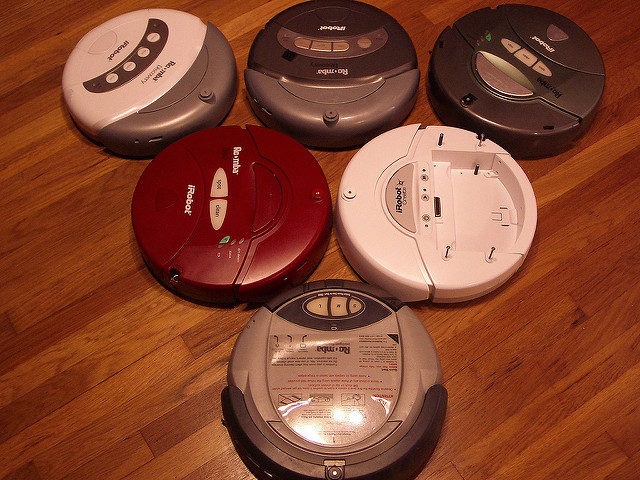The company behind the Roomba robotic vacuum cleaner, iRobot, has suggested it may sell maps of Roomba users’ homes to tech companies such as Amazon, Google or Facebook.
The Guardian reports that iRobot has become the center of a privacy debate after the company’s CEO suggested selling the floor plans of Roomba users’ homes to third-party tech companies. CEO Colin Angle stated, “There’s an entire ecosystem of things and services that the smart home can deliver once you have a rich map of the home that the user has allowed to be shared.”
Angle recently told Reuters that some of the advanced Roomba devices use situational awareness to make a mental map of the space around them and then saves that information for future use. Angle believes that he could now sell this data to one of the big three tech companies, Apple, Google or Facebook, within the next few years.
Angle’s comments have been well received amongst investors with iRobot stock reaching $102 in June, up from $35 a year ago, giving it a market value of nearly $2.5 billion on 2016 revenues of $660 million. Willem Mesdag, a managing partner of hedge fund Red Mountain Capital who previously sold his stock in iRobot, believes that the company’s new direction may be a profitable one.
Mesdag seems to believe that an acquisition of iRobot by one of the three big tech companies would be extremely beneficial for them saying, “I think they have a tremendous first-mover advantage. The competition is focused on making cleaning products, not a mapping robot.” Consumer rights advocates have, however, expressed their concern at the floor plans of users homes being sold to large tech companies.
Jim Killock, the executive director of the Open Rights Group, commented on Angle’s statement saying, “This is a particularly creepy example of how our privacy can be undermined by companies that want to profit from the information that smart devices can generate about our homes and lives.” She continued to say, “Smart household products may enable companies to obtain information that we consider to be private, such as floor plans of where we live. However, this is not necessarily personal data as protected under data protection law.”
Killock stated, “Companies should treat data collected in people’s homes as if it is personal data and ensure that explicit consent is sought to gather and share this information. Taking an ethical approach, rather than complying with minimal legal requirements, would build trust with customers.” Angle has stated that user data would not be sold without the user’s permission, but he’s confident that users would agree to have their information sold in exchange for access to smart home features.
However, iRobot’s current privacy policy may already allow them to sell their users’ data. When signing up for iRobot’s Home app, users are required to accept a privacy policy which states that iRobot can share users’ personal information with third party vendors, government bodies and in connection with “any company transaction” such as a merger. Rhett Jones of Gizmodo stated, “Maybe that doesn’t unnerve you, but it probably should. This is all part of the larger quest for a few major companies to hoover up every bit of data about you that they can. Now, they want to know all about your living space.”
Lucas Nolan is a reporter for Breitbart News covering issues of free speech and online censorship. Follow him on Twitter @LucasNolan_ or email him at lnolan@breitbart.com

COMMENTS
Please let us know if you're having issues with commenting.